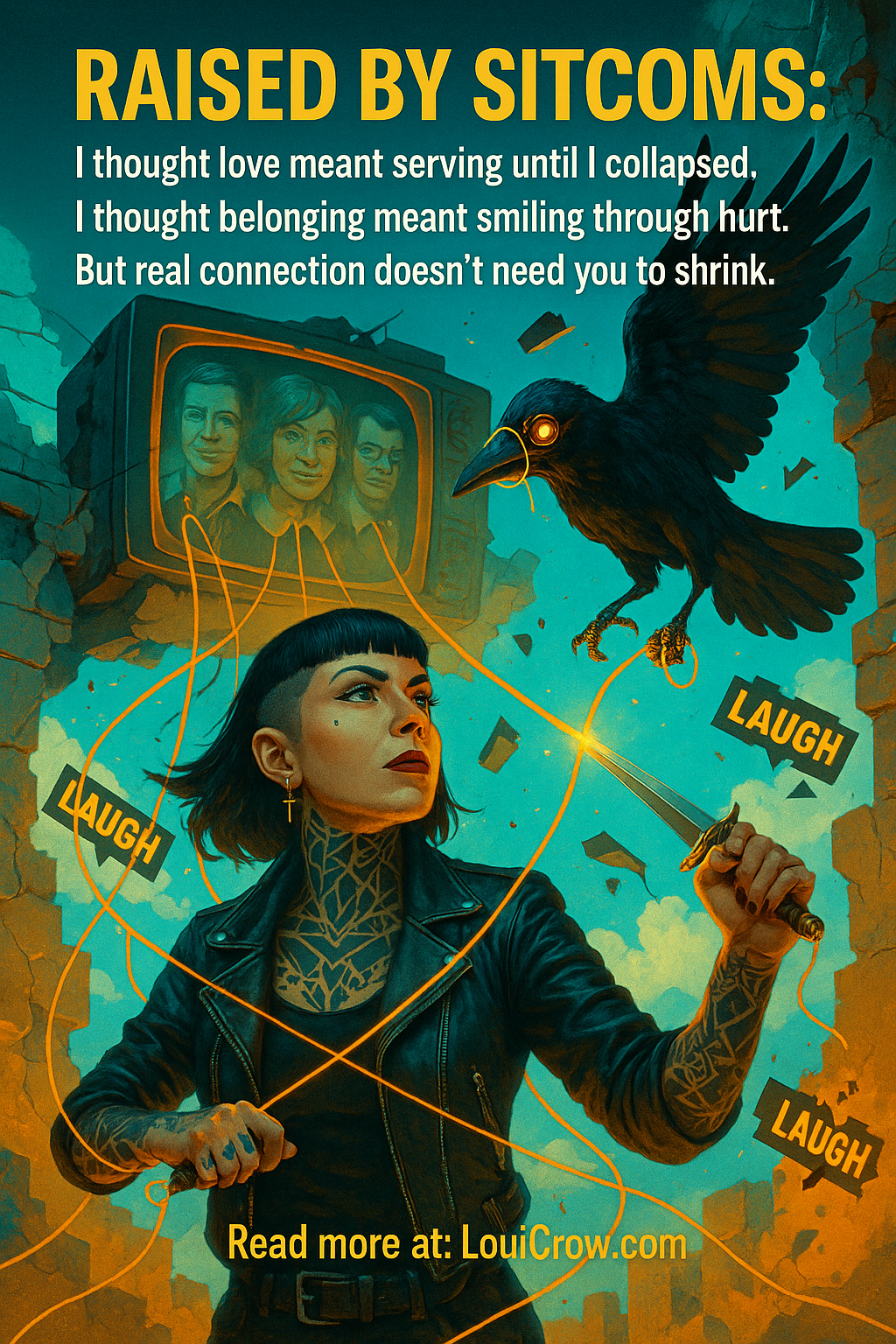Cultural Programming & Nervous System Rewrites
The television was the altar.
It glowed through dinner. Through birthdays. Through breakups.
It played during punishment and praise.
It whispered how to live, even when no one else did.
We weren’t just watching it.
We were trained by it.
We learned:
▸ Be nice, even when you’re bleeding.
▸ Laugh when it hurts.
▸ Drink when it’s quiet.
▸ Love people who don’t see you.
▸ Call chaos “chemistry.”
▸ Call silence “peace.”
▸ Call shame “maturity.”
No one taught us this.
They just left the TV on.
And we inhaled it like air.
So now—when you flinch at directness, when you ghost your friends, when you swallow your rage and call it growth—remember:
That’s not a flaw.
That’s programming.
This is Where We Rewrite the Script.
RAISED BY SITCOMS is a space to unlearn the laugh track.
To name the beliefs that were baked into the background.
To cut the spell of what we were told was normal.
No fixing. No rescuing. No polite rebrands.
Just truth.
The holy, awkward, sometimes hilarious moment when you realize:
“That wasn’t me. That was the script.”
And now?
You get to throw it out.
Crow would say:
You didn’t ask for the script.
But you get to rewrite the ending.

Cheers to Codependency: How Sitcoms Taught Us to Serve, Smile, and Stay Small
After three years of no TV, movies, or social media, I returned to old shows and heard something I couldn't un-hear. Cheers wasn’t just about friendship — it was about survival by self-erasure. This blog unpacks how sitcoms taught us to smile through hurt, serve until collapse, and mistake exhaustion for loyalty. Seeing it clearly is the first step to walking free.

🪶 Laugh Track Exorcism:The Blueprint I Didn’t Know I Was Living By
This blog unpacks the invisible emotional training many of us received from sitcoms and pop lyrics—scripts that taught us to confuse pain for love, passion for chaos, and mockery for intimacy. From laugh tracks to toxic lyrics, we were conditioned to ignore our body’s first instincts and perform survival instead of presence. But waking up isn’t just intellectual—it’s somatic. This is a nervous system exorcism disguised as media analysis.
